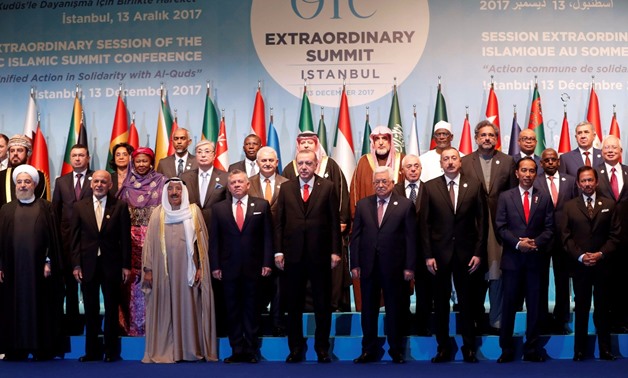The reaction of the main Muslim majority countries to Turkey’s operation with the Syrian National Army against the PKK-YPG-SDF communist bands in northern Syria has become a glaring and sad illustration of the current state of the Islamic world.
The war of the believers against the atheists who want to spread their delusional ideas among the Muslims has been clearly supported only by the leaders of Qatar, Pakistan, and Azerbaijan.
Some other countries remained diplomatically silent, which is not the worst option.
The fact that Iran condemned Turkey’s operation, whose leadership constantly calls for an alliance between the two countries, should not surprise anyone.
Except for those who are mentally stuck and believe in the Khomeinist rhetoric of Shia-Sunni brotherhood supporting Muslims against the “great” and “small” Satan, the former being the West which is behind this operation against Turkey and the latter being the communists against whom Turkey is currently fighting, this reflects the real intentions of the leadership of this country.
In reality, Iran has been implementing its only strategy for a long time (probably since Khomeini came to power) – to establish regional Shiite hegemony under various slogans and pretexts, and to support those who help it achieve this goal, regardless of their beliefs.
The position of Saudi Arabia, the United Arab Emirates, and Egypt, which recently chose their friends and enemies according to a principle – to harm Turkey and Qatar – was not surprising, although it was not shocking.
These two countries, in particular, are behind the fragile coalition of the so-called Syrian Democratic Forces (SDF), under the auspices of which Kurdish communists operate with the help of Arab tribes, partly bought by the Saudis and Emiratis.
So they are defending their own, that’s clear, although they probably shouldn’t worry so much – according to some experts, after the defeat of the PKK-YPG they will be forced to humble themselves and become more compliant, which will increase the actions of their Arab component in the SDF, and thus the Saudis as well.
The reaction of Jordan, which joined the chorus of condemnation, was unpleasantly surprising, though of course not shocking.
After all, Jordan itself has been supporting the Syrian rebels of the Southern Front for years, i.e. those whom Ankara is now trying to accommodate somehow.
However, considering that the Southern Front was undermined in part because the Jordanian leadership closed the border for the supply of arms and ammunition to the rebels, this is quite logical.
At the time, experts said that the normalization of relations between Amman and Damascus was supported by business circles that suffered losses due to the rebels’ blocking of trade between the two countries.
But it is difficult to explain this patronage of the Jordanian leadership for the SDF, since the territories it currently occupies are adjacent to Turkey, not Jordan.
So it must be the so-called “Arab solidarity,” if by the latter we mean solidarity specifically with Saudi Arabia and the UAE.
The same consideration seems to be behind the grotesque position of the leadership of the internationally recognized Palestinian Authority, represented by Mahmoud Abbas, who also condemned Turkey and the SNA operation in Syria.
Moreover, a rare case – almost in unison with its sworn enemies (?) from Tel Aviv.
It is understandable that Abbas depends primarily on Jordan, but such solidarity with Israel’s position in this case looks like a tragicomedy.
By the way, the opponents of Abbas from Hamas did not support Turkey and the SNA either, which is also clear – they are already dependent on Iran.
But at least they have not yet condemned them – and thank God for that, so to speak.
All in all, this is very sad and shows the deep political crisis that the Islamic world is going through at the moment.
Of course, many will argue that this is the position of unprincipled and puppet leaders who oppress their own countries, and they will be right.
But, unfortunately, it cannot be denied that the leaders’ policies on this issue largely correspond to the sentiments in their countries, which are influenced by historical complexes and nationalist prejudices.
Against this background, the alliance between Turkey and Pakistan looks promising, despite the latter’s close ties with Saudi Arabia and intertwined interests with Iran in Afghanistan.
Thus, it can be said that the leadership of Pakistan, represented by Imran Khan, by declaring its support for Turkey in the face of the condemnation of Iran and Saudi Arabia, has made a political decision and set priorities for itself.
This, in turn, adds a little optimism to the idea expressed by the Prime Minister of Malaysia that these countries could become key points for the revival of Islamic civilization.

